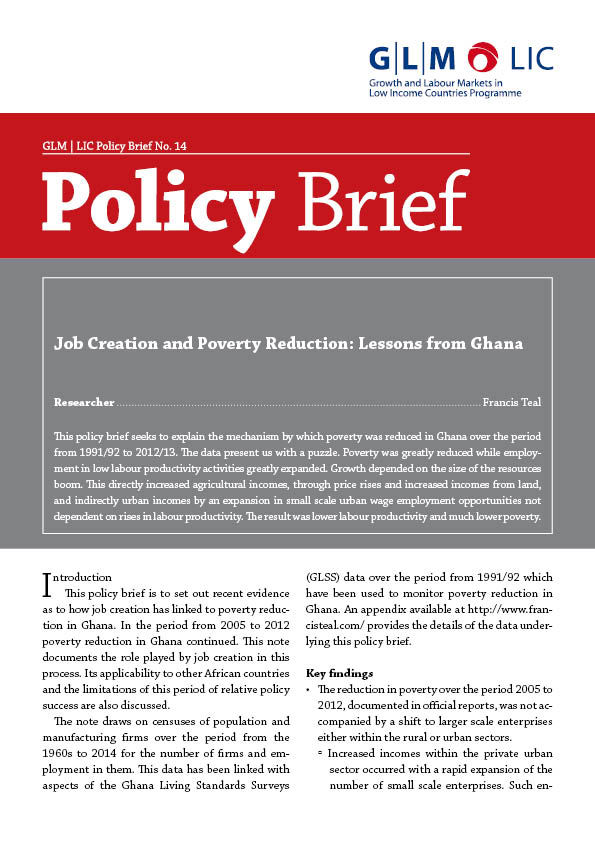This policy brief seeks to explain the mechanism by which poverty was reduced in Ghana over the period from 1991/92 to 2012/13. The data present us with a puzzle. Poverty was greatly reduced while employment in low labour productivity activities greatly expanded. Growth depended on the size of the resources boom. This directly increased agricultural incomes, through price rises and increased incomes from land, and indirectly urban incomes by an expansion in small scale urban wage employment opportunities not dependent on rises in labour productivity. The result was lower labour productivity and much lower poverty.

GLM|LIC Policy Brief No. 14
Job Creation and Poverty Reduction
Lessons from Ghana
- Francis Teal